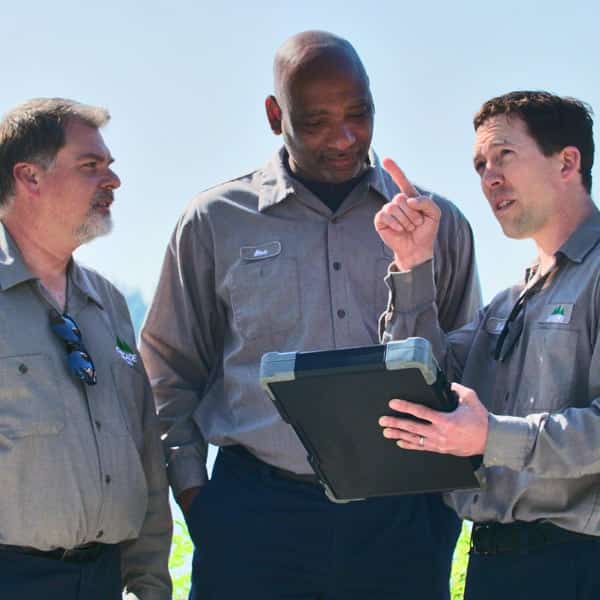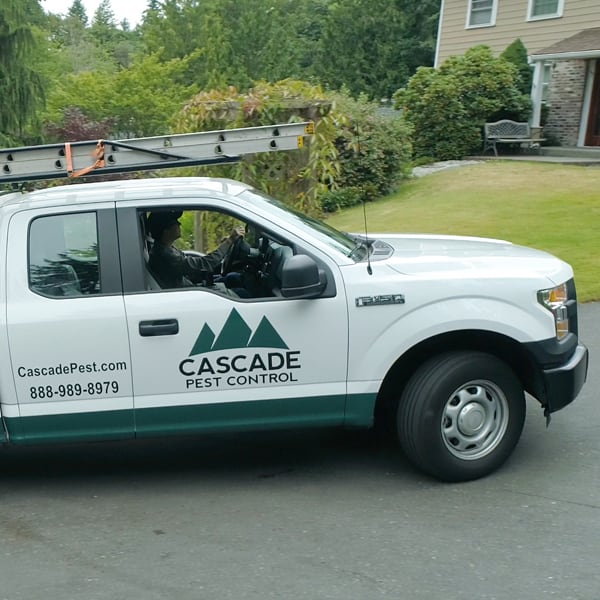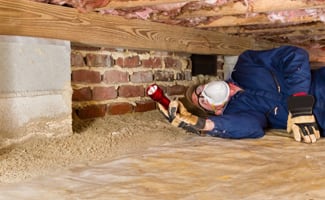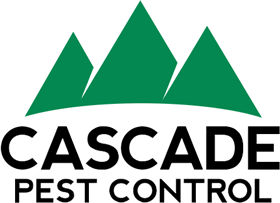Pest control technicians, also known as Pest Management Professionals, provide a valuable public service that is in demand. Insect and rodent pests—amongst others—can harm people and/or damage property. Termite damage to homes is obvious, however here in the northwest carpenter ants and wood boring beetles also damage wood. And rodents damage home insulation to the point that it must be replaced in tight attics and/or crawlspaces which is very costly. Add to that bites, stings and other issues insects and spiders cause and you can understand why pest control specialists are needed in our market.
A Cascade Pest Control technician starts out at $50,000/year or more and averages between $70,000 and $85,000/year. You are personally assigned a work truck which you can take home each night. Pay is tied to production so learning to work smart and maintaining a great focus on work ethic throughout each day largely determines how much you make.
The most significant trait we look for is someone who is conscientious in their work and enjoys the service aspect of providing pest protection to Cascade customers. If you already have pest management experience, that’s helpful. But we often hire new trainees that have good attitudes and abilities to work with.
Pest Management Specialists

Pest management specialists need to learn the biology and control of a variety of insects, spiders, other arthropods, rodents and other small animals. It is also important to learn about how a home is constructed as these pests will often hide inside walls and you want to have an idea what’s behind the siding or sheetrock, for example.
Providing pest control also means meeting the homeowner and others to coordinate the services and sometimes to get their help in how they contain garbage cans or pet food dishes to help prevent the attraction or feeding of insects, rats and mice.
Working as a pest management professional you would receive thorough initial training, tutoring for the Washington state license, and extensive ongoing training with equipment and the safe use of low-toxicity control products. Education around personal protection equipment is key to insuring your health and safety, although Cascade utilizes very safe products to begin with.

Each technician is provided a company vehicle, equipment and supplies. Work each day is laid out via our routing software and soon you get to know the accounts and the people who depend on your work. It is definitely a career for those who are good at working alone, can manage themselves to maintain standards and treatment protocol, and who like being both responsible for their work and enjoy being rewarded for work well done. Obviously, being conscientious around one’s own work ethic is valued most.
A reasonable part of each day requires driving so a valid driver’s license and good driving history is important. We train each technician how to assess a home or other structure for pests and factors that would attract pests. Meeting clients and going over issues on their home (or business) is also an important part of the work.
Cascade provides training in all these aspects of pest management and we have an experienced office staff that provides excellent support. We also have field technicians who can help with difficult accounts, such as occasional, yet challenging pest issues. The field managers also help with further training and advice and are always just a call away. We have various stations set up in the area for supplies without having to fully return to the Cascade office.
The basic requirements to be a Cascade Pest Control technician are:
- High school diploma or equivalent
- A valid Washington state driver’s license and good driving record
- Study to pass the Washington state pest control license. (We help)
- Ability to crawl under decks or within crawlspaces, etc.
Scheduling and routing each day is done with our software program, yet allows for new call-in work which may fill in during the day. Each technicians has a company-provided cell phone and/or tablet that you use to following your day’s route plan and enter notes for each account.
Type of work required includes:
- Driving to accounts, and on occasion to a Cascade supply depo or the office.
- Observing each account for new pest activity while replenishing rodent bait in secured bait stations and/or spraying for spiders, ants or other pests.
- Most services are exterior but sometimes the pests are indoors and require careful treatment inside.
- Meeting homeowner or occupant (when home) and reviewing any pest concerns they may have.
- Inspecting home exteriors and crawling beneath homes to assess rodent and/or insect activity.
- Some work with tools to seal up opening pests are using for access (rodent- and insect-proofing).
- Applying less-toxic pesticides in a safe and careful manner.
- Keeping records of applications is an important WA state requirement.

What are some of the most challenging aspects of being a pest control technician? The most challenging or sometimes difficult aspects of pest control are also what can provide the deepest satisfaction and gratitude by your clients. They include:
- Crawling under homes or at times into attics or on roofs.
- Driving through traffic to make your stops.
- Dealing with a customer who is upset over the rats, wasps or other pest issues.
If you’re already experienced in pest control you’ll need to learn Cascade’s way of doing things and be able to follow our protocols. Experience in general pest control and rodent control is most helpful. While we do not provide fumigation, such experience can be very helpful. Also, experience in bed bug treatment and/or bird and wildlife control is also helpful. If you have a Washington state pest control license that’s great, but coming from other states you’ll simply have to prep for and pass the WA state exam.
Call us to discuss what opportunities we have for you as a Cascade Pest Control technician.
888-989-8979 or email us at [email protected]
